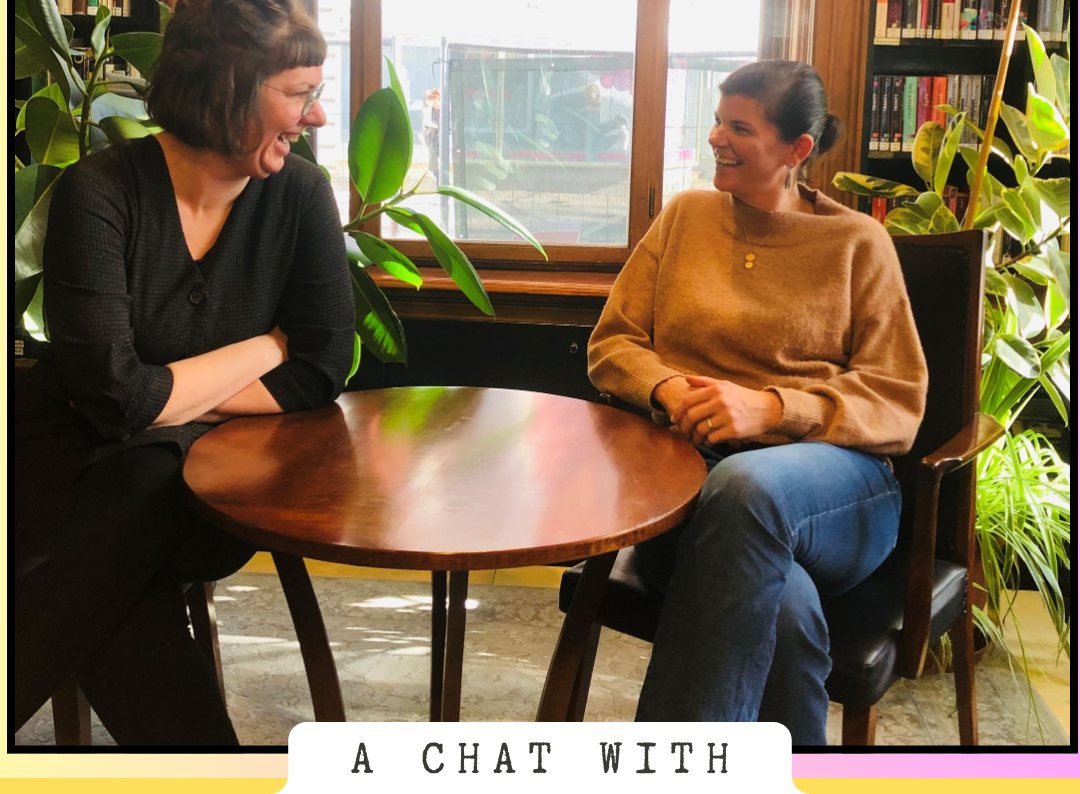“A leadership team sparks innovation.” Last week, Head of the City Libraries, Marie Therese Stampfl, described to Johanna Stadlbauer from the PostDoc Office how the biggest living room of Graz enables exchange of ideas and people and does its part for democracy – and how she got on the leadership path.
On our interview tour in which we want to learn from leaders in sectors other than academia, we’ve made a stop in Zanklhof.
Marie Therese Stampfl has a PhD in anthropology, and is one of those versatile humanities graduates: She’s worked in cultural management for two Arts festivals, completed a competitive traineeship from the Austrian chamber of commerce, and then worked in marketing and communications for Holding Graz. As head of the municipal libraries, since 2021 Stampfl works with 76 employees to create interactive spaces of learning and inspiration. Apart from books, there’s an extensive workshop programme, a “library of things” (“Dingeborg” includes kitchen tools and musical instruments), a podcasting studio, a gaming zone for teenagers and much more.
How did you develop towards a leadership role?
I learned through every role I had. For example, during my PhD, I pursued a focus on European identity and effective participation of citizens. As a WKO trainee, I benefited from intensive training and coaching for future leaders, including a course dedicated to board member duties. I’ve held supervisory board functions at the Graz Energy Agency and the Graz Children's Museum FRida & freD, and I’m on the board of the Österreichische Gesellschaft für Politische Bildung. Currently, I take advantage of internal education offers for leadership.
What are some of the exciting aspects of leading the municipal libraries?
In terms of our team, I work with a high number of part-time staff spread over several branches. We benefit a lot from staff who have experience in other sectors (“Quereinsteiger”). We have quite a diverse team, which is useful for the programming, because it ensures that our offers are relevant to the people of Graz. I work with a leadership team, and I enjoy the freedom given to us to innovate, inspired by international sector developments. The library is a space for exchange and through our events and workshops, we make that happen successfully. For this, I can use my communications background very well.
I’m now also the chair of the Büchereiverband Österreichs, which means I get to organize our annual conference with, among others, university libraries, and co-edit the conference proceedings, which is a new and exciting challenge.
What would interest you about University of Graz researchers and what could they gain from you?
Due to my own background, I know about versatile skills and diverse career paths, and value cross-sectoral experience. I’m an expert at “all things local”, which might be useful for international researchers, and the library is always up for collaborating on projects.
Personally, I enjoy gaining perspectives from other sectors, and academics’ perspectives would be valuable with regards to topics that are key to my work: democracy, participation of citizens in their city, citizen science, social developments like Book Tok/young adult literature (and the gender roles imminent in them), how we can best provide context to what is popular and what interests people.
We appreciate Marie Therese Stampfl for allowing us to be nosy and ask her everything, and for showing us the busy rooms of Zanklhof!
It’s brilliant to have her in our Address Book for Careers Beyond Academia. We believe that research leaders can get a lot of inspiration from leaders of other sectors.
(Questions and write-up: Johanna Stadlbauer, 15.11.2024)
Next interviews:
- Elli Scambor (Institut für Männer- und Geschlechterforschung),
- Evelyn Waltena (Johnson & Johnson)
